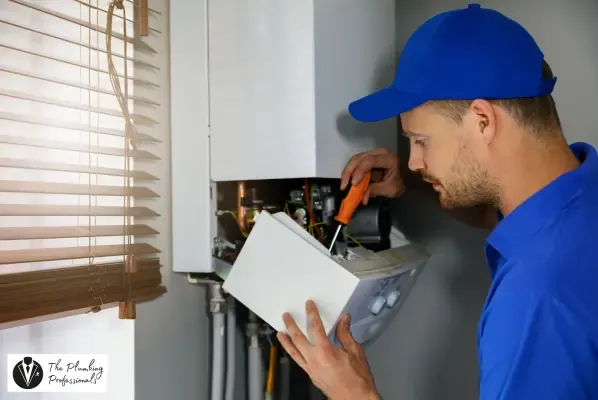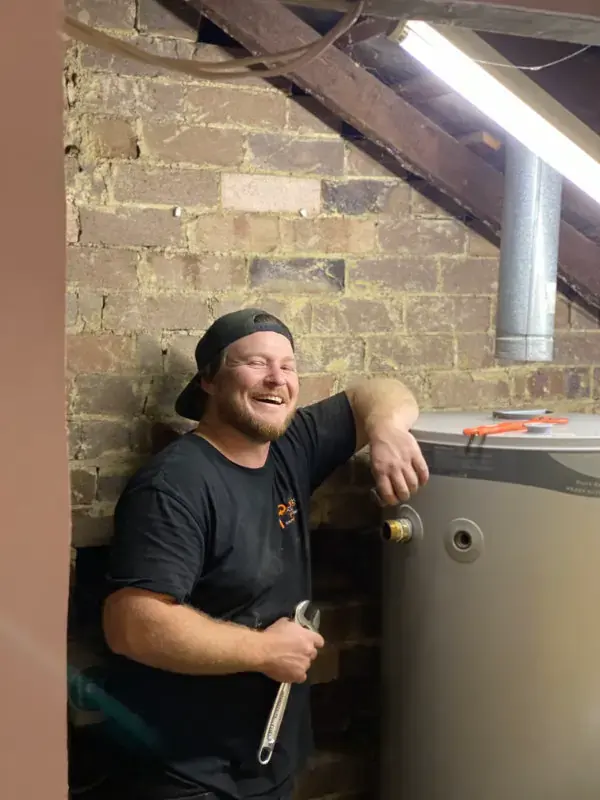How Long Should A Hot Water System Last?
When considering home maintenance, a common and crucial question arises: 'How long do hot water systems last?' The answer, however, isn't a simple one.
The lifespan of your household hot water system is influenced by a multitude of factors, ranging from the type of system you have to the quality of your water and the regularity of your maintenance.
Understanding these variables is key to maximising your hot water tank life and preventing unexpected, and often inconvenient, replacements. This guide will delve into the typical lifespans of various hot water systems, the factors that affect them, and how to ensure you get the most out of your investment.

Average Lifespan by Hot Water System Type
The lifespan of a hot water system varies significantly depending on its type. To give you an insight, let's explore the average life expectancy of the most common hot water system types, from traditional electric and gas models to more modern solar and tankless options. Understanding these differences will help you forecast when you might need a full hot water system replacement and plan accordingly.
How Long Does an Electric Hot Water System Last?
Electric hot water systems are a common choice for households, known for their relatively straightforward installation and operation. But how long can you expect an electric hot water system to last?
Typically, the lifespan of an electric hot water tank ranges from 10 to 15 years.
However, several factors can influence the actual electric water heater lifespan (see below section titled Factors Affecting Hot Water System Lifespan).
How Long Does a Gas Hot Water System Last?
Gas hot water systems are a popular choice due to their efficiency and rapid heating capabilities. But how long can you expect a gas hot water system to last?
On average, a well maintained gas water heater will last between 8 and 12 years.
How Long Does a Solar Hot Water System Last?
Solar hot water systems are known for their energy efficiency and environmental friendliness. But a key question for homeowners is: how long does a solar hot water system last?
Generally, solar hot water systems boast a longer lifespan compared to traditional electric or gas models, typically lasting between 15 to 20 years, and sometimes even longer with proper maintenance.
This extended lifespan is one of the significant advantages of investing in solar technology.
Tankless / Instant Hot Water Heater Lifespan
Tankless, or instantaneous, hot water heaters are gaining popularity due to their energy efficiency and space saving design. But how long can you expect a tankless hot water heater lifespan to be?
Generally, tankless hot water heaters boast a significantly longer lifespan than traditional tank style systems, often lasting 20 years or more.
This extended longevity is a key advantage of choosing a tankless system.
Factors Affecting Hot Water System Lifespan
While we've talked about the average lifespans of different hot water system types, it's crucial to understand that these are just averages. The actual lifespan of your hot water system can vary significantly based on several factors, primarily:
💧 Water Quality
Hard Water: Water rich in minerals like calcium and magnesium can lead to sediment buildup inside the tank or heat exchanger. This sediment can reduce heating efficiency, accelerate corrosion, and ultimately shorten the life of your hot water system.
Sediment Buildup: Regardless of water hardness, sediment can accumulate over time. Regular flushing is essential to remove these deposits and prevent premature failure.
🔧 Hot Water System Maintenance
Regular Flushing: Annual flushing removes sediment and debris, preventing buildup and maintaining efficiency.
Anode Rod Replacement: The anode rod protects the tank from corrosion. Regularly checking and replacing it is crucial, especially in systems with tanks.
Burner Cleaning (Gas Systems): Cleaning the burner ensures efficient combustion and prevents buildup that can lead to problems.
Professional Servicing: Regular inspections by qualified technicians can identify and address potential issues early on.
🛠️ Installation Quality
Proper Installation: Professional installation is crucial for a hot water system's longevity. Improper installation can lead to leaks, stress points, and premature failure.
📈 Usage
Household Size: Larger households with higher water usage put more strain on the system, potentially reducing its lifespan.
Water Usage Patterns: Frequent and heavy use can accelerate wear and tear.
⚙️ System Quality / Brand
Component Quality: Higher quality components and construction naturally contribute to a longer lifespan.
Brand Reputation: Reputable hot water system brands often use higher quality materials and have better quality control.
🌦️ Climate
Extreme Temperatures: Exposure to extreme heat or cold can impact the durability of the system, especially for outdoor water heaters.
Frost & Hail: Solar panels are especially susceptible to damage from hail or frost.

Signs Your Hot Water System Needs Replacing
Even with the best care, hot water systems don't last forever. Recognising the signs that your system is nearing the end of its life can save you from unexpected cold showers and costly emergency repairs. Here are some telltale signs that it might be time to consider replacing your hot water system:
❌ Age: As a general rule of thumb, if your hot water system is over 10 years old, it's a good idea to start thinking about a replacement, even if it seems to be functioning properly.
❌ Leaks and Corrosion: Any signs of leaks around the tank or connections indicate potential corrosion and failure. This is a significant red flag and often requires immediate attention.
❌ Rust: Visible rust or corrosion on the tank or fittings is another clear sign of deterioration.
❌ Inconsistent Hot Water: If you're experiencing fluctuating water temperatures, such as the water going from hot to cold unexpectedly, it could be a sign of a failing heating element, burner, or thermostat.
❌ Strange Noises: Unusual noises coming from the tank, such as banging, rumbling, or whistling, can indicate sediment buildup, failing components, or internal damage.
❌ Rusty or Cloudy Water: If your hot water is discolored, particularly rusty or brown, it could be a sign of corrosion inside the tank. This can affect water quality and potentially stain fixtures.
❌ Rising Energy Bills: A less efficient hot water system will use more energy to heat the water, leading to higher energy bills. If you notice a significant increase in your energy costs, it might be time to investigate your hot water system's efficiency.
If you notice any of these signs, it's important to contact a qualified plumber to assess your hot water system. They can determine whether a repair is possible or if a replacement is necessary. Remember, addressing issues promptly can prevent further damage and ensure a reliable hot water supply for your home.

Extending the Life of Your Hot Water System
While hot water systems have a limited lifespan, there are several proactive steps you can take to maximise their longevity and ensure they operate efficiently for as long as possible.
Here are some essential tips to extend the life of your hot water system:
✔️ Regular Flushing: Flush your hot water system annually to remove sediment and debris. This is crucial for preventing buildup that can reduce efficiency and accelerate corrosion.
✔️ Anode Rod Checks: If your system has an anode rod, have it checked and replaced every few years by a qualified plumber. The anode rod sacrifices itself to protect the tank from corrosion, so replacing it when needed is essential.
✔️ Professional Inspections: Schedule regular inspections by a licensed plumber to identify and address any potential issues early on. This can help prevent minor problems from escalating into major repairs or replacements.
✔️ Temperature Settings: Set your hot water temperature to the recommended level, which is above 60°C to ensure prevention of bacteria growth. Higher temperatures can increase energy consumption and put more stress on the system.
By following these tips and being proactive with regular maintenance, you can significantly extend the life of your hot water system and enjoy reliable hot water for years to come.
To book a hot water system service, or for professional advice on any topics covered in this article, call our friendly Plumbing Professionals team on 02 8188 5396 or complete our online enquiry form today.